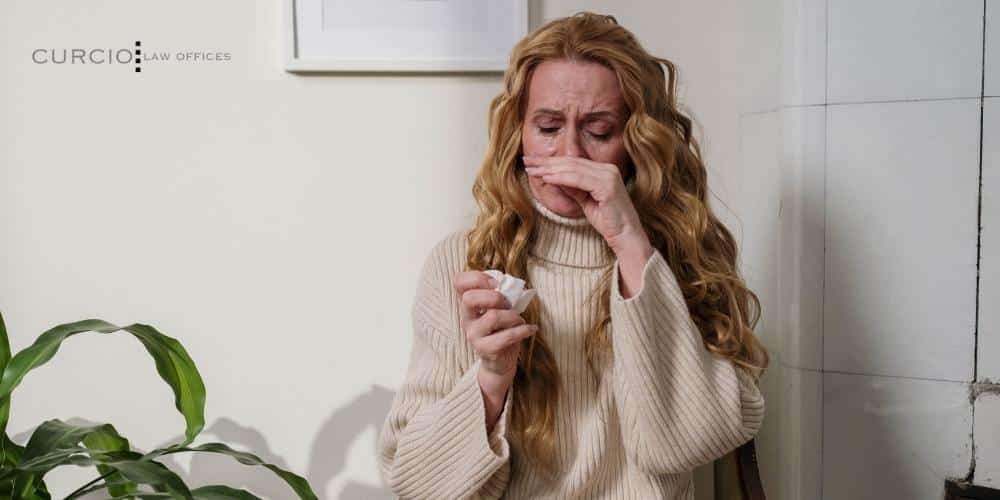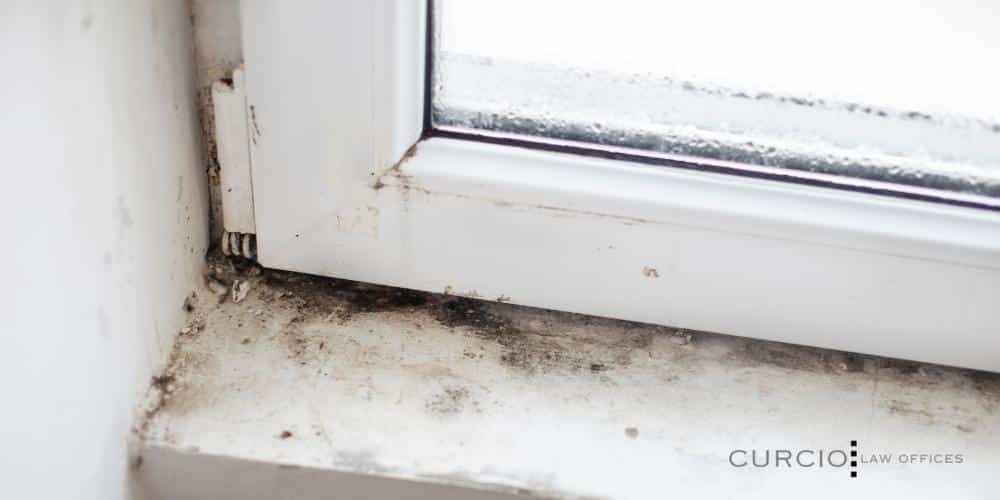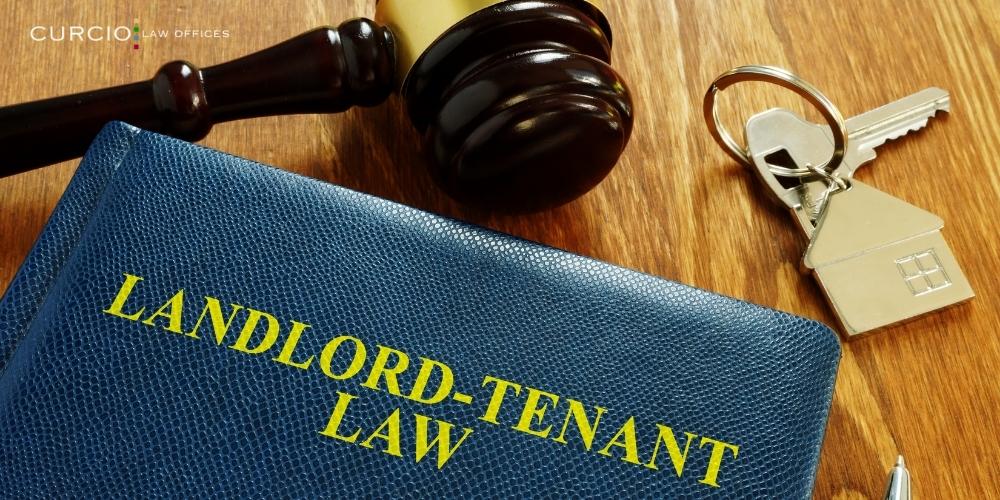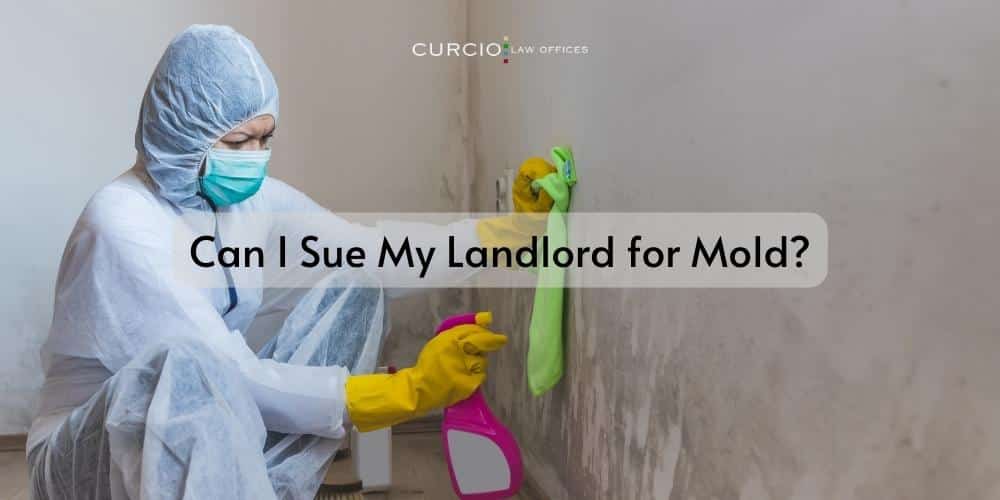Mold is one of many environmental hazards that can cause significant health problems, especially if large amounts are present in a home or apartment. Toxic types of mold – such as black mold – can easily lead a tenant down a path of crippling medical bills. If you’re in this situation, you may be wondering: can I sue my landlord for mold? Below, Chicago personal injury attorneys at Curcio & Casciato discuss how to best handle this legal issue.
Our top-notch attorneys have extensive knowledge of Landlord-Tenant Law in Illinois. If you’re not sure how to best handle the mold problems in your apartment, contacting our law firm may be a good starting point. If you’re ready to start an attorney-client relationship with our team of attorneys, call 312-321-1111 today.
What is Mold?
Let’s start with the basics so we can really break down how a mold problem can affect someone’s health.
Mold is a type of fungal growth that can occur in damp areas or areas with decaying organic matter. Molds spread through the production of tiny cells, called mold spores, that can float in the air. Believe it or not, there are mold spores in the air almost everywhere, whether you’re inside or outside. Just like bacteria, mold is literally everywhere.
There are thousands of different types of mold, most of them harmless to human health. However, there are a few categories of toxic molds out there, and they are:
- Cladosporium
- Penicillium
- Fusarium
- Aspergillus
- Stachybotrys (AKA: black mold)
- Chaetomium
- Alternaria
It’s important to note that these categories of mold aren’t poisonous in and of themselves, but they can become toxic when they produce mycotoxins. Long-term exposure to toxic mold that produces mycotoxins have been linked to a host of health problems.

Can Mold Exposure Make You Sick?
Yes, mold exposure can make someone sick, especially if they’re extremely sensitive to mold and other allergens. A mold problem in a rental unit could either produce zero health effects or dozens of health effects. This really depends on the person, the type of mold, the amount of mold growth, and the length of exposure.
Mold Exposure Symptoms
Mold exposure symptoms can include:
- Nasal congestion and irritation
- Red, itchy, watery eyes
- Difficulty breathing
- Sore throat
- Coughing
- Sneezing
- Wheezing
- Headaches
- Chronic fatigue
- Skin rashes
- Asthma attacks (only if you have asthma already)
- Nosebleeds
- Cognitive losses such as brain fog
- Nausea
The aforementioned symptoms generally appear in cases of short-term exposure to mold. Long-term symptoms of mold exposure have been linked to chronic respiratory infections, chronic fatigue, Legionnaires disease, organ damage, and a general mold allergy.
The people who are most at risk of developing mold related health problems are babies, children, elderly people, those who are allergic to many types of mold, those who have chronic respiratory problems, those with weakened immune systems, and those who are pregnant.
How Long Does it Take For Mold to Affect Your Health?
The answer to this question depends on a variety of factors: you, your health, the type of mold, the amount of mold, how long you were exposed to mold, and how close you are to the mold. Some people develop symptoms immediately upon moving into a rental unit, while some people develop symptoms gradually.
If you already have lots of allergies – one of them being mold – you could expect to react very quickly to a mold problem. Meanwhile, if you don’t have any allergies, your body may not react to mold damage in your environment at all.
Large amounts of mold are more likely to trigger health issues than small amounts of mold. Similarly, long-term mold exposure is more likely to trigger health issues than short-term exposure. If you’re super close to the mold problem, you’re also more likely to develop mold related health issues.
Lastly, exposure to one of the aforementioned types of mold that can be toxic – such as black mold, for example – is more likely to trigger health issues compared to harmless types of mold.
How Common is Mold in Buildings?
Older buildings in hot and humid states are most likely to have mold problems. But really, any type of personal property in any state can develop mold simply due to moisture. In fact, a statistic from Truth About Mold claims that up to 70% of American homes have mold problems. Still, there’s truly no way to know how rampant toxic mold is in local housing.
This fact does not mean that mold should be assumed. Generally speaking, nobody assumes the risk of mold. Speak with an attorney about the open and obvious doctrine for more information.

Common Locations of Toxic Mold in Apartments
If you’re developing random cold and flu-like symptoms, it may be time to check your apartment for black mold. All types of mold can grow where there is moisture. So it may be worth checking your place for water damage in bathrooms, laundry rooms, basements, etc. Common locations of mold in apartments include:
- Air conditioning systems
- Leaky windows
- Behind damp or peeling wallpaper
- Underneath carpet that is frequently exposed to a water leak
- Walls and ceilings that have suffered damage from water leaks
- Ceiling tiles
- Basements and attics
Can You Sue a Landlord for Mold?
If you’re a tenant who’s suffering health problems from toxic mold exposure, you may be asking yourself: can I sue my landlord for mold?
You could try to sue your landlord for toxic mold in your apartment, but you may not have a strong case if you can’t prove that your health issues are directly caused by the exposure. Additionally, a couple of factors could complicate your personal injury lawsuit: your lease agreement and the city/state you live in.
Lease Agreement
Your attempt to file a lawsuit could be unsuccessful depending on your lease agreement. If your landlord specifically states in your lease that they’re not responsible for mold growth and mold-related health issues, and you signed that lease, then you may not have a case.
City and State Laws
Additionally, not all cities and states have specific mold laws in place. As many of us know, there are federal laws in place for lead exposure in homes and rental properties. However, this is not the case for mold.
The only states that have taken steps to protect tenants from toxic mold in rental properties are California, Indiana, Maryland, New Jersey, and Texas. Additionally, New York City and San Francisco have some mold guidelines in place for personal property. Illinois, however, does not.
Does My Landlord Have to Disclose Mold Growth in Illinois?
If you’re renting in Illinois, your landlord legally doesn’t have to tell you about large amounts of mold before you rent a piece of property.
What To Do if There’s Mold Growth in Your Rental Property
The first thing you should do if you notice toxic mold in your apartment is to report it to your landlord immediately. Be sure to do this via written notice, and have an extra copy of your notice on file just in case you need to use it for evidence. According to Illinois Landlord Tenant Rights, landlords are required to:
- Maintain an apartment that’s fit to live in
- Fix all issues within the rental unit
- Ensure that the apartment meets local housing and health codes
So if you’ve told your landlord about your apartment’s mold problem and they fail to fix the conditions that created the mold or fail to have the mold removed, then you could potentially sue for that along with your mold-related health issues.
Before you take any legal action though, it’s important to remember that Illinois (and most other states) have renter’s rights too. If you contact your landlord about a mold problem and they discover that you have created conditions that promote mold growth (either through poor hygiene practices or water damage), then you likely won’t have a very strong personal injury lawsuit against the landlord.
Rent Withholding
Once tenants report the mold problem to your landlord via written notice, they have a few mold remediation options, especially if the landlord fails to fix the issue.
Tenants can stop paying rent for the time being and claim that because of the toxic mold growth, their apartment is uninhabitable. As previously stated, Illinois landlords are bound by the “implied warranty of habitability,” which basically means that they have to make sure their personal property is fit to live in.
Repair and Deduct
Tenants have another option, which is called repair and deduct. This basically means that the tenant will fix the mold problem by themselves, but their landlord must cover the costs for supplies and labor. Generally, landlords will do this by giving tenants a “discount” on monthly rent that adds up to the amount of money the tenant spent in order to fix the problem.
Damages for Toxic Mold Exposure in a Rental Property
If your landlord’s failure to control mold problems in your apartment caused you to suffer health problems, you could recover compensation for the following damages:
- Medical expenses
- Lost wages
- Personal repair and cleanup costs
If a landlord discovers that their tenant is the main cause of mold in a rental property, then the landlord could sue the tenant and potentially recover compensation for property damage.

Call Curcio & Casciato Today
Our Chicago personal injury lawyers at Curcio & Casciato has decades of combined experience in handling both personal injury cases and premises liability cases. Our Chicago premises liability attorneys also have extensive knowledge of Landlord-Tenant Law in Illinois. Toxic mold is an environmental hazard, and we believe that landlords who fail to remedy the situation for the health and comfort of their tenants deserve to be held responsible. We can analyze your case, help you determine the best course of action, and help you prepare evidence in order to build a strong claim. Contact our team of experienced attorneys at 312-321-1111 today. We offer a free consultation to all new clients.



